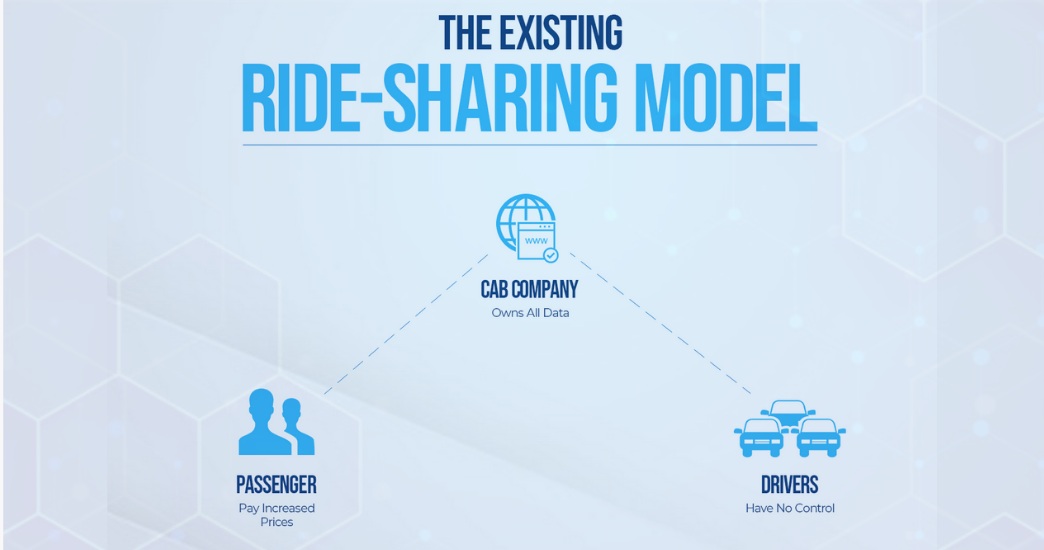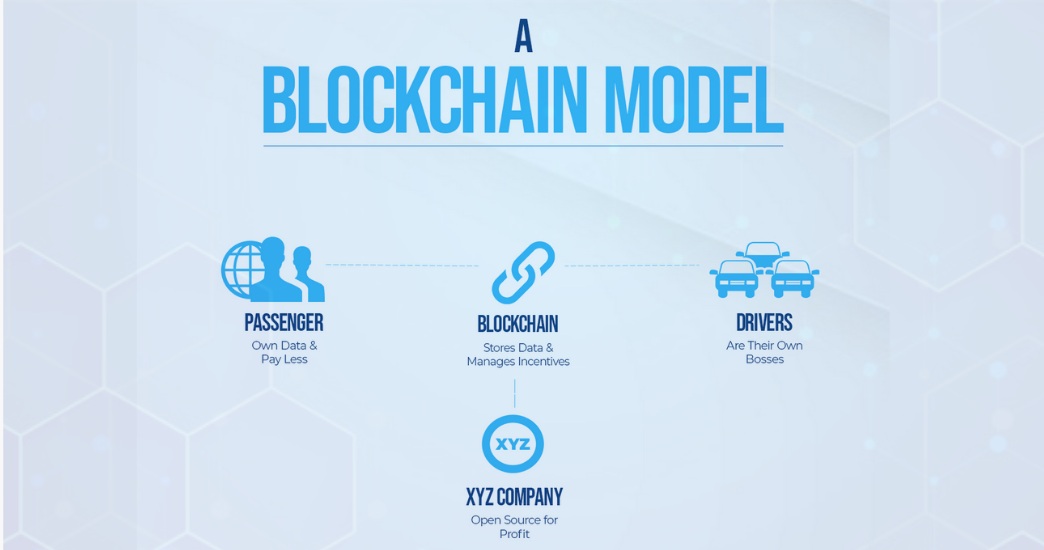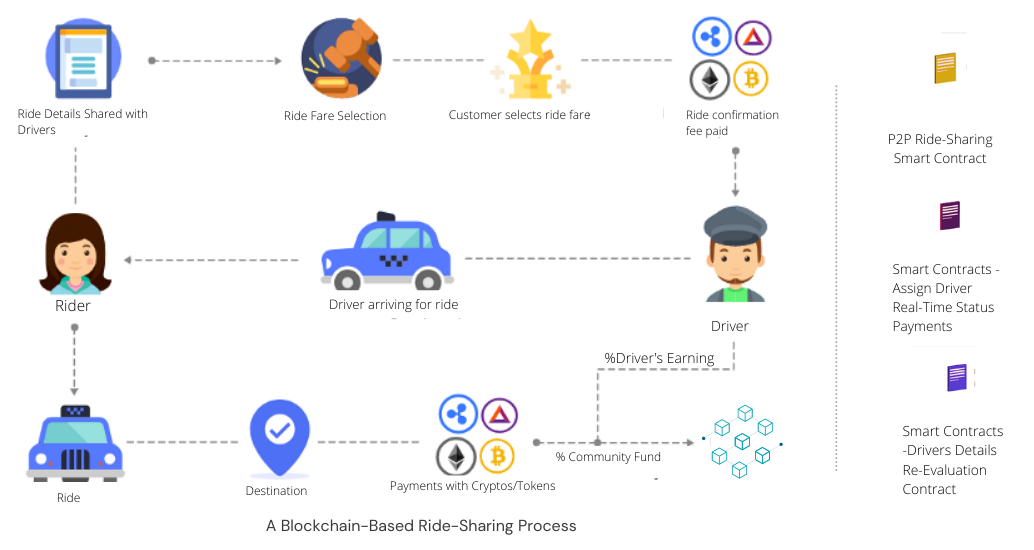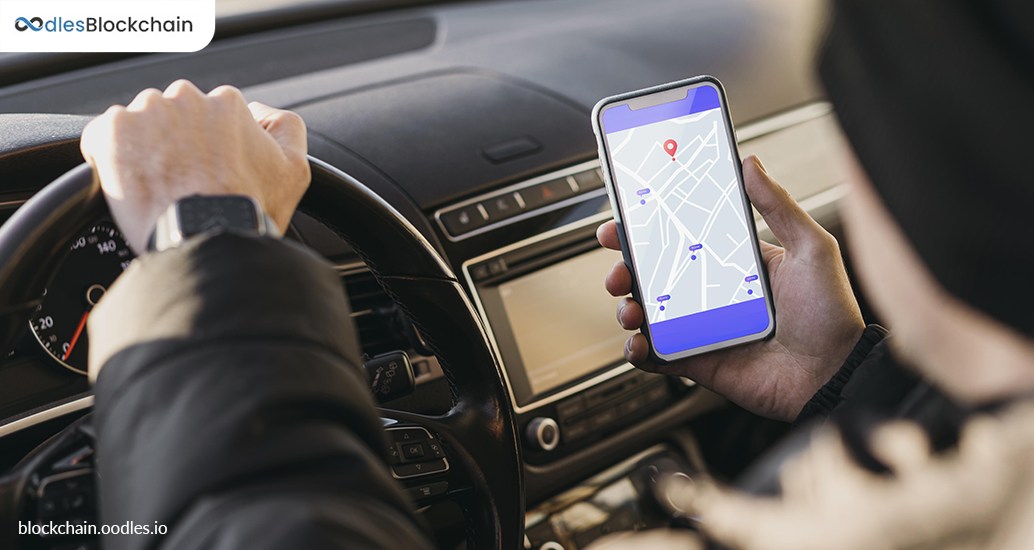-
The rapid rise of on-demand ride-sharing apps like Uber and Lyft among daily commuters worldwide presents significant opportunities, as customers increasingly prefer the convenience and affordability of these services over traditional taxis. However, the industry also faces numerous challenges, making it crucial for providers to identify and address factors that both attract and repel passengers. Blockchain automotive solutions offer a promising approach to customer-centric ride-sharing app development, enabling stakeholders to optimize appealing features while addressing issues that drive customers away. By leveraging blockchain technology, ride-sharing companies can enhance transparency, security, and efficiency, thereby creating a more reliable and appealing service for users.
Automotive Industry Challenges
In the following image, examine the current model compared to a blockchain-powered ride-sharing app model.

Costly Payments Due to Intermediaries
Currently, when a passenger books a ride, the request is first routed through the company's system, which then assigns a driver. This process incurs up to a 30 percent charge on the total fare, making it costly for the customer while the driver receives payment only after a commission deduction. These extra costs arise from the presence of intermediaries between the driver and the passenger.
Insufficient Transparency
Drivers often struggle to understand the workings of ride-sharing firms due to the lack of accountability in existing centralized systems. If you have ever used a ride-sharing service, you may have encountered concerns about peak pricing. The involvement of numerous unknown roles within the company leaves riders and drivers without any explanation for abrupt price spikes.
Lack of Data Security and Privacy Mechanisms
Ensuring the security and privacy of information related to drivers and riders is a major challenge for companies. Despite spending millions of dollars on user authentication, instances of false identities continue to rise.
Also, Explore | Drive Your Automotive Business Ahead with Blockchain Solutions
Blockchain Solutions

Fast, Secure, and Efficient Transactions
Blockchain enables riders to communicate directly with drivers via a decentralized network, minimizing the extra costs associated with multiple intermediaries.
Transparent and Accurate Pricing Model
Blockchain's potential for accountability allows passengers to understand how a ride-sharing business operates. Smart contract integration ensures accurate pricing based on specified parameters, establishing confidence and transparency in the system.
Strengthened Security and Privacy Standards
Smart contracts create an appropriate ranking for riders, ensuring that drivers do not engage in illegal activities. This allows riders to make informed decisions about whether to use a particular service provider.
Streamlined Economic Activities
A decentralized car-sharing network allows anyone to earn money with their vehicle. With no intermediaries, market opportunities expand for those with a smartphone and a secure modern car.
Related Post | Blockchain Applications in the Automotive Industry | Advancing Innovation
Blockchain Implementation in Ride-Sharing App Development
P2P Ride-Sharing Business Model
Blockchain technology, essentially a digital distributed database, stores data across a decentralized network of servers, offering a permission-based view of all information. Through smart contracts, blockchain facilitates transactions by encouraging members to do business with minimal trust required.
Stakeholders can leverage blockchain-enabled short- or long-term peer-to-peer (P2P) vehicle leasing, allowing direct interaction between the two involved parties. Without intermediaries, consumers can search for rental services based on their preferences and make informed choices. Additionally, users can lend out their cars and communicate directly with those in need.
Enhanced Identity Management
Blockchain-based identification enables straightforward passenger and driver identity authentication, thanks to the availability of immutable data on a shared network. This allows users to have confidence in the identities of those using ride-sharing services.
Blockchain aims to curb identity fraud by providing secure encryption keys that protect against future attacks and misuse of records. When renting out or hiring vehicles, individuals can be assured of accurate identification.
Also, Read | Powering Digital Identity Management with Hyperledger Projects
Fast and Secure Transactions
Blockchain can sign digital contracts and facilitate direct transfers between parties involved in a transaction, eliminating the need for a third-party payment gateway. The integration of cryptocurrencies streamlines governance, transfers, and operations.
Additionally, it removes the need for fiat currency and third-party payment channels for executing operations.
Enhanced Network Data Security
Blockchain can ensure rideshare data security and privacy, protecting it from hackers. This creates a network that can operate as an alternative to Uber or Lyft, maintaining data on a decentralized database.
Only decentralized apps (Dapps) that facilitate transfers between drivers and riders can access this information, eliminating the risk of a central database being compromised.
Enhanced Customer Loyalty Programs
A blockchain-based solution can monitor transactions between passengers and drivers, awarding them reward points that can be redeemed and used within the loyalty network as a form of currency.
For instance, integrating incentives related to shopping, dining, travel, and entertainment will encourage consumers to use crypto coins. This approach will also enable various businesses to participate in a shared crypto-ecosystem. When users redeem their reward points, permissioned members will update their accounts accordingly.
Also, Visit | Blockchain-Based Loyalty Programs
A Hypothetical Use Case
We can develop and deploy a permissioned blockchain-based solution to record and execute contracts and transactions within a ride-sharing network. This approach can safely and stably interconnect smart or autonomous cars, car-sharing services, and end-users.
Users and drivers—whether they are fleets, associations, or individuals—will register on the blockchain to anonymously and seamlessly share information. This data may include vehicle location, access keys, terms of the arrangement (such as cost per mile or insurance details), payment information, and more.
The system will then process all receipts after each trip, updating the customer database with a trip history that can be accessed as needed.
Here is a hypothetical overview of a blockchain-based ride-sharing app flow.

We can harness the potential of blockchain resources at the foundational level of the system, offering the following key capabilities:
Record-keeping: Providing secure, auditable, and immutable storage for digital and physical asset documents.
Smart contracts: Enabling contracts that can self-execute, streamlining lengthy and costly procedures.
Transfer of value: Facilitating the exchange of property or ownership without the need for intermediaries.
Additionally, blockchain technology can cover other relevant services such as track and trace, cryptocurrencies, intellectual contracts, and oracles.
Also, Check | How the Automotive Industry is Getting into the Metaverse?
What's Next
Our team of blockchain developers at Oodles possesses a comprehensive understanding of how Uber and other ride-sharing app services can leverage blockchain for transformative purposes. Contact us to discuss your specific requirements and explore how we can assist you in implementing innovative solutions.

Our Offices
INDIA
Emaar Digital Greens, Sector 61,
Gurugram, Haryana
122011.
Welldone Tech Park,
Sector 48, Sohna road,
Gurugram, Haryana
122018.














